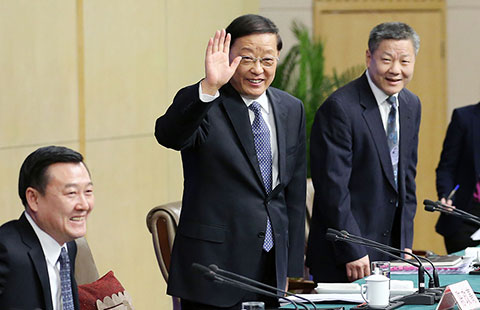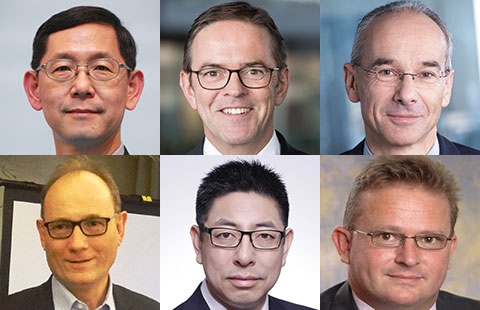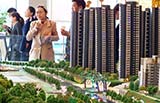Decoding political logic behind China's economic miracle
(Xinhua) Updated: 2016-03-16 11:20BEIJING - Mesmerized by China's dazzling growth in past decades, the world has found it difficult to analyze the phenomenon through existing archetypes of modern economics.
The draft of the 13th Five-Year Plan sets the direction for China from 2016 to 2020 by demanding medium-high growth, driving the world economy. The magic key to the China miracle may not, however, be an economic one, but political logic.
People's development
Crucial to the China miracle is the ruling party's governance philosophy, which embodies the common aspirations of the people, said Sheng Yafei, a National People's Congress deputy, who grew up in a small village.
"I'm still haunted by the memory of having little to eat when I was a child. It made me understand later that economic development is for the sake of the people; the essence of China's pursuit of prosperity," he said.
What is becoming known as "the people's five-year plan," will be ratified during this parliamentary session and has strong sense of benefit for ordinary people. The plan is vital in the final countdown in building a moderately prosperous society by 2020 and a critical period of transition.
"The Communist Party of China (CPC) has always put the people at the center of its strategies," said Zhou Hanmin, a national political advisor. "The ruling Party represents people's broadest interests in this nation. It enables the CPC to accelerate the pooling of consensus and come up with solutions to people's most pressing demands."
Efficiency, democracy in parallel
Unlike political-economic models where efficiency and democracy appear compatible, the "China miracle," to some extent, is a result of both running in parallel.
"Time is money and efficiency is life," was a catchphrase coined by residents of Shenzhen more than three decades ago which spread nationwide and translated into inestimable economic benefits.
In Shenzhen today, symbolic hub of economic reform, migrant workers continue to contribute wisdom.
"The new draft five-year plan proposes allowing migrant workers to receive free vocational education for free," said Yi Fengjiao, a NPC deputy and factory manager in Shenzhen. "This is the result of repeated suggestions by front-line workers to NPC deputies like me."
- Largest blue diamond to appear at auction
- China to play leading role for development of Swiss SMEs
- China highlights online fake fight on consumer rights day
- Bank of China upgrades Africa service with new office in Casablanca
- Lawmakers approve China's five-year plan against economic headwinds
- Chinese companies embrace digitalization at IT exhibition
- Agricultural e-commerce bridges China's urban-rural gap
- Alibaba to train 1 million rural e-commerce gurus
















